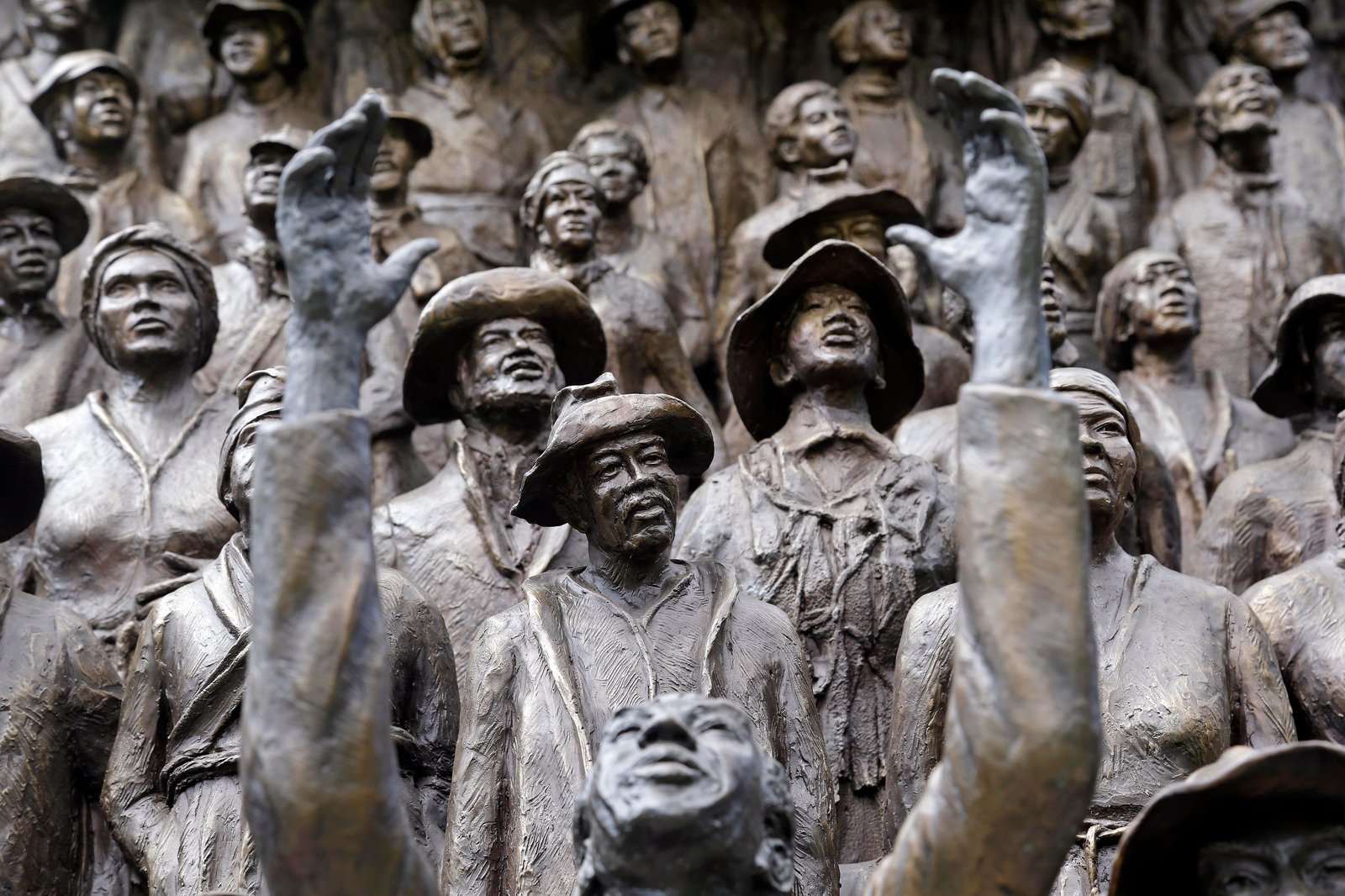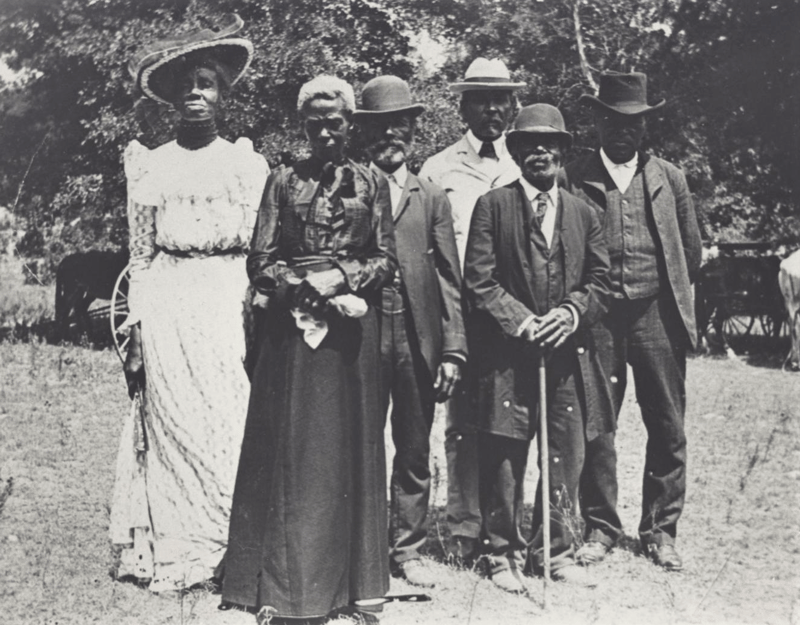What Is Juneteenth All About?
You may have heard of Juneteenth, but what is it about? It’s not listed on most calendars, but most states in the U.S. recognize it. What can we learn from it?
This monument, located in Austin, Texas, commemorates the announcement of the abolition of slavery on June 19, 1865. 
Technically, the process started two years earlier with President Abraham Lincoln’s Emancipation Proclamation of 1863, but for the enslaved people of the South, it really began only after the Confederacy was defeated earlier in 1865.
This proclamation was delivered by Union General Gordon Granger:
“The people of Texas are informed that, in accordance with a proclamation from the Executive of the United States, all slaves are free. This involves an absolute equality of personal rights and rights of property between former masters and slaves and the connection heretofore existing between them, becomes that between employer and hired labor.”
Absolute equality
Perhaps the most significant part of the proclamation was the words “absolute equality”—not improved equality. Though it wasn’t realized at that time, these were the right words. From God’s perspective, race relations are about equality, not just improved rights.
From God’s perspective, race relations are about equality, not just improved rights.
The reality, however, sad to say, is that most of the freed slaves only experienced improvements, and in some cases their lives got even worse. That is a reality the United States has been struggling with for over 155 years.
Regardless of where society stands on providing equality, every individual can make it his or her goal to practice providing true equality to people of other races.
Jesus Christ said, “You shall be perfect, just as your Father in heaven is perfect” (Matthew 5:48). In our personal lives, we shouldn’t be satisfied with improvements, but should strive for God’s perfect standard. Racial discrimination is a sin. It does not reflect the perfect character and standards of God. And, like other sins, it can be hidden and camouflaged even behind real or alleged progress.
Juneteenth should remind us of the importance of going past improvements and striving toward godly perfection.
Was everyone really “free at last”?
Juneteenth ended slavery on paper, but for many it was a grudging concession they were forced to accept. For example, according to the Congressional fact sheet on the day, “Even after the general order, some slave masters withheld the information from their slaves, holding them as slaves through one more harvest season.”
Former slaves gather to celebrate Freedom Day (or "Juneteenth") in Austin, Texas, on June 19, 1900 (source: Austin Public Library).
Douglas A. Blackmon discussed this subject in his 2008 book Slavery by Another Name, calling the post–Civil War era the “Age of Neoslavery.”
Many African-Americans were imprisoned for minor crimes, some of which were infractions of laws devised to target them specifically.
One of the worst forms of neoslavery was peonage, under which African-American men would be forced to work on farms or at factories without pay. This was done in different ways. For instance, sometimes African-American men would be arrested for petty crimes and then given the option to pay massive fees (which they couldn’t possibly afford) or to labor for a plantation owner or businessman who would pay the debt for them.
Governments of Southern states specifically designed some legislation to target African American men. Vagrancy laws, for instance, made it a crime to not have a home or employment.
Many African-American men in the post–Civil War era found themselves trapped in the peonage system for most of their lives.
For all too many people, slavery didn’t really end until 1942. It was that year, Mr. Blackmon noted in an interview with NPR, that Franklin Roosevelt finally addressed the problem: “President Roosevelt ordered that the Department of Justice, for the first time, take seriously the reality that slaves were still being held in the South. … That was the first serious effort, for 50 years really, to prosecute someone for holding slaves and that was the beginning of the end of this massive system.”
So, 77 years after Juneteenth, these forms of neoslavery were finally outlawed.
Stop dwelling on the past?
Some may counter, Doesn’t Juneteenth unnecessarily dig up past problems? Doesn’t remembering the stories of slavery, even the freedom from it, lead to more conflicts and division?
Consider this: There’s a right way and a wrong to remember something. Remembering lessons from the trials of life, in a balanced way, can help us avoid repeating past mistakes.
Few people would say to a Jewish person, “When will you people ever get over the Holocaust? Why don’t you just leave it in the past?”
Nor would anyone ask those in New York City: “Why do you insist on remembering what happened on 9/11? Why not just move forward?”
God instructed Israel to remember their experiences as slaves in Egypt. Consider these examples:
- “Remember this day in which you went out of Egypt, out of the house of bondage” (Exodus 13:3).
- “You shall neither mistreat a stranger nor oppress him, for you were strangers in the land of Egypt” (Exodus 22:21).
- “Remember that you were a slave in the land of Egypt” (Deuteronomy 5:15).
- “You shall remember that you were a slave in the land of Egypt” (Deuteronomy 15:15).
- “You shall remember that you were a slave in Egypt” (Deuteronomy 16:12).
- “You shall remember that you were a slave in the land of Egypt” (Deuteronomy 24:22).
God wanted them to remember the lessons from their enslavement and not to repeat the sins of Egypt. But He never intended for their remembrance of their slavery to make them harbor resentment and hatred toward Egypt. In fact, God’s ultimate intent is for the Israelites and Egyptians to be reconciled.
“In that day Israel will be one of three with Egypt and Assyria—a blessing in the midst of the land, whom the LORD of hosts shall bless, saying, ‘Blessed is Egypt My people, and Assyria the work of My hands, and Israel My inheritance’” (Isaiah 19:24-25). This prophecy is set in the future, after Christ returns, which is realistically the only time when humanity’s reconciliations will have a chance of taking place.
The Juneteenth law tried to promote a form of reconciliation and fairness. It concluded: “This involves an absolute equality of personal rights and rights of property, between former masters and slaves and the connection heretofore existing between them, becomes that between employer and hired labor. The Freedmen are advised to remain at their present homes and work for wages.”
Though this was by no means applied fairly and equitably in most cases, the intent of the proclamation was for former slaves and masters to continue to work together and develop a new relationship—that of employee and employer.
Realistically, General Granger shouldn’t have expected them to be treated fairly. Yet former slaves now had an employment law. It was a start.
Moving forward
Benjamin Franklin is quoted as saying: “Justice will not be served until those who are unaffected are as outraged as those who are.”
Great progress against racial biases has historically been made only when those who are not targeted by hate support and defend those who are. The state of those being mistreated often hasn’t mattered enough to make necessary changes, until those who were unaffected made their voices heard.
Juneteenth represents one end of a battle that began when the first slaves arrived in Jamestown, Virginia, in 1619, 400 years ago. Although much progress has been made in the years since, the quest for harmony and equality continues on.
May we all commit to rising above physical racial differences and strengthen one another as fellow men and women made in the image of God.
Date Posted: June 18, 2020

 by Kevin Epps
by Kevin Epps

